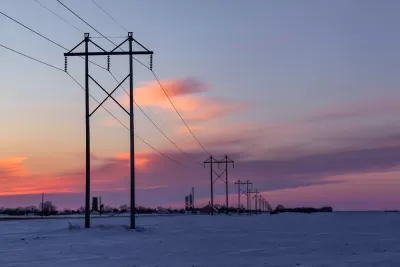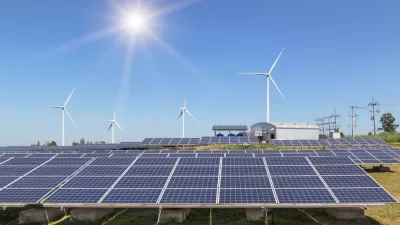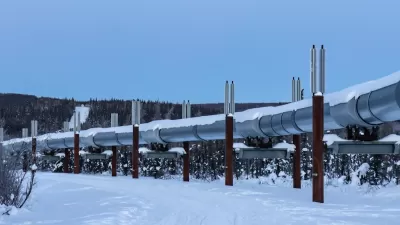If signed by the governor, a new state law would require all utilities in the state to switch to renewable energy within two decades.

In a party-line vote, the Minnesota state Senate approved a law that requires the state’s power utilities to switch to 100 percent clean power by 2040. In a piece originally published by Grist and republished in Route Fifty, Zoya Teirstein describes the legislation, which revives a failed 2021 proposal rejected by the then-Republican state senate.
According to Teirstein, “The legislation establishes two new mandates for electric utilities in the state: a renewable electricity standard and a carbon-free energy standard.” A prior goal of reaching 25 percent renewable energy by 2025 was met eight years early. Acceptable sources of energy include solar, wind, hydropower, nuclear, hydrogen, and biomass (burning wood or trash). “The bill contains provisions that will help streamline the permitting process for new energy projects in the state, set minimum wage requirements for workers hired by the state’s utilities to build large-scale projects, and prevent power from waste incineration plants located in low-income, majority non-white communities from counting toward the 2040 target.”
Despite warnings from Republican lawmakers that the new rule would make the state’s energy grid less reliable and more expensive, Teirstein points out that “Multiple analyses of existing state-level clean energy standards show the mandates have actually improved grid reliability and reduced costs for consumers.”
FULL STORY: Minnesota to Require 100% Carbon-free Electricity by 2040

Alabama: Trump Terminates Settlements for Black Communities Harmed By Raw Sewage
Trump deemed the landmark civil rights agreement “illegal DEI and environmental justice policy.”

Planetizen Federal Action Tracker
A weekly monitor of how Trump’s orders and actions are impacting planners and planning in America.

The 120 Year Old Tiny Home Villages That Sheltered San Francisco’s Earthquake Refugees
More than a century ago, San Francisco mobilized to house thousands of residents displaced by the 1906 earthquake. Could their strategy offer a model for the present?

In Both Crashes and Crime, Public Transportation is Far Safer than Driving
Contrary to popular assumptions, public transportation has far lower crash and crime rates than automobile travel. For safer communities, improve and encourage transit travel.

Report: Zoning Reforms Should Complement Nashville’s Ambitious Transit Plan
Without reform, restrictive zoning codes will limit the impact of the city’s planned transit expansion and could exclude some of the residents who depend on transit the most.

Judge Orders Release of Frozen IRA, IIJA Funding
The decision is a victory for environmental groups who charged that freezing funds for critical infrastructure and disaster response programs caused “real and irreparable harm” to communities.
Urban Design for Planners 1: Software Tools
This six-course series explores essential urban design concepts using open source software and equips planners with the tools they need to participate fully in the urban design process.
Planning for Universal Design
Learn the tools for implementing Universal Design in planning regulations.
Clanton & Associates, Inc.
Jessamine County Fiscal Court
Institute for Housing and Urban Development Studies (IHS)
City of Grandview
Harvard GSD Executive Education
Toledo-Lucas County Plan Commissions
Salt Lake City
NYU Wagner Graduate School of Public Service





























